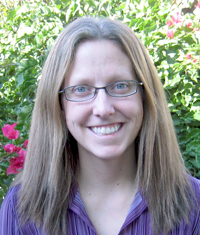Spur More, Better Computer Science Teachers
October 18, 2013
Tough problems await creative answers.
So when Harvey Mudd College computer science Professor Colleen Lewis saw the challenge high school computer science teachers, especially beginners, face in making the subject comprehensible for their young audiences, she proposed an innovative solution.
It’s one she hopes will inspire more instructors to teach the subject.
Lewis recently received a three-year, $598,513 National Science Foundation grant to develop a library of online resources that will help beginning and developing high school computer science instructors teach 90 basic computer science concepts.
The resource library will be based upon teaching strategies gleaned from a series of working groups, comprised of experienced high school computer science teachers and university faculty. Group members will meet to discuss and document successful teaching strategies based on students’ thinking processes, prior knowledge and common stumbling blocks.
“Our assumption is that the best source of inspiration and knowledge is veteran computer science teachers, with about 10,000 hours of experience necessary to develop expertise,” Lewis said.
Her project, “What 10K Novice Teachers Can Learn from Teachers with 10K Hours of Experience,” is part of a broader NSF-sponsored CS 10K initiative with the goal of having 10,000 new, well-qualified computer science teachers in 10,000 high schools by 2017.
The current one-size-fits-all approach to teacher training does not translate into success in the computer science classroom. No matter how well the teacher knows the subject matter, he or she may have difficulty explaining certain concepts. Lewis’s project will allow teachers to go online, find the concept they are struggling with and identify five to 10 strategies that have proven effective.
In addition to improving the overall quality of computer science instruction, the project is expected to increase access to computer science for students of color and those who are economically disadvantaged.
